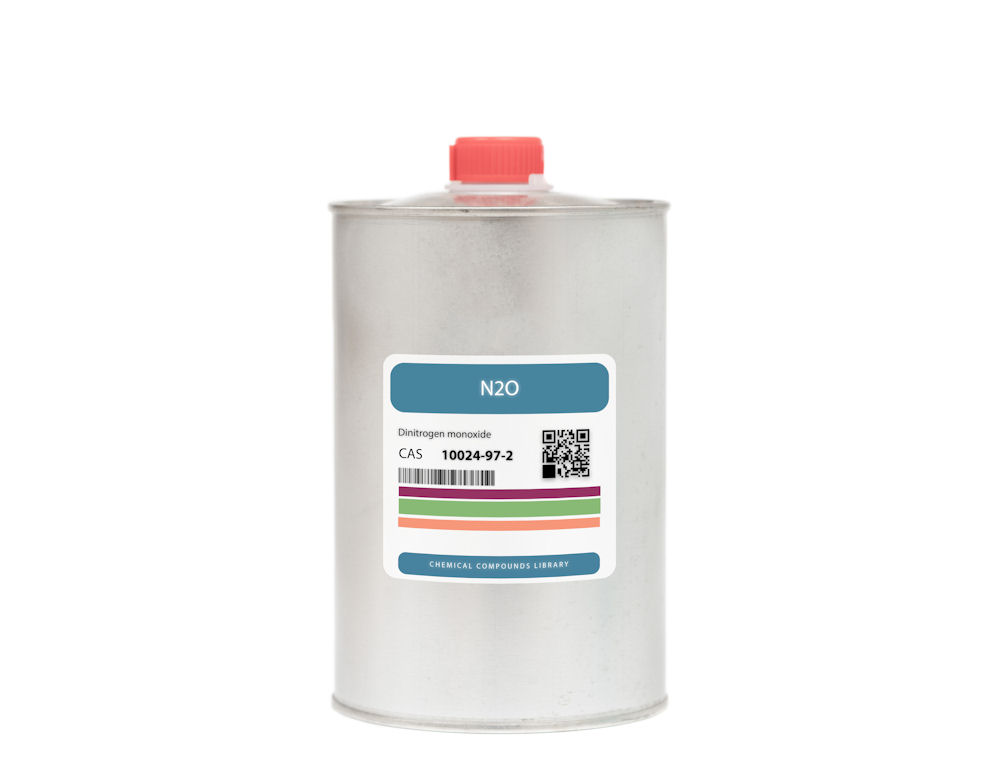
In recent years, the recreational use of nitrous oxide, colloquially known as “whippets,” has become an alarming trend, particularly among young adults and teens. As this practice gains popularity, it is crucial to shed light on the potential health risks and the urgent need for education and awareness.
At the Discovery Institute in Marlboro, New Jersey, we are dedicated to informing communities about the dangers associated with this seemingly innocuous substance. While often perceived as a harmless way to achieve a brief euphoric high, whippets can lead to severe health implications, including neurological damage and addiction. By understanding the risks and promoting open discussions, we can empower individuals to make safer choices and protect the well-being of our community. Join us as we delve deeper into the world of nitrous oxide misuse and explore the steps we can take to curb this concerning trend.
Defining Whippets: An Overview
Whippets refer to canisters filled with nitrous oxide (N2O), a gas that is commonly used in various culinary and industrial applications. When dispensed, nitrous oxide can induce feelings of euphoria, relaxation, and a brief “high.”
The phenomenon of using whippets involves ingesting the gas, usually from whipped cream chargers, leading to a momentary escape from reality. However, it’s essential to distinguish between the productive uses of nitrous oxide and its misuse for recreational purposes.
The Origin and History of Whippets
The recreational use of nitrous oxide can be traced back to the late 18th century when it was first discovered as an anesthetic. Initially used in medical settings, it gained popularity among artists and party-goers in the 19th and 20th centuries who utilized the substance for its euphoric effects.
Notably, nitrous oxide has a storied legacy in the fields of culinary arts and industry. In cooking, it is often used in whipped cream dispensers, facilitating the creation of light and airy desserts. The gas acts as a propellant, allowing chefs to infuse flavors and textures that elevate their culinary creations, making it a staple in both home kitchens and professional pastry shops.
Whippets: Not Just a Dog Breed
While the term “whippets” may evoke images of the graceful dog breed known for its speed, the context of nitrous oxide is different. The overlap in terminology illustrates the broader cultural shift and the dual meanings attributed to words in modern slang. Today, when someone refers to “doing whippets,” they are likely discussing the inhalation of nitrous oxide from canisters intended for culinary purposes.
This duality highlights the importance of context in understanding language, especially when discussing substances with both legitimate uses and potential for abuse. The accessibility of nitrous oxide in everyday products has led to a concerning trend among youth, who may not fully grasp the risks involved. Beyond the immediate effects, misuse can lead to serious health consequences, including oxygen deprivation and neurological damage, underscoring the need for education and awareness surrounding its use.
The Uses of Whippets
Understanding whippets means grasping their legitimate applications as well as the recreational misuse that has generated public health concerns. Primarily, they serve beneficial functions in both culinary and commercial activities.
Whippets in the Culinary World
In the culinary space, whippets are instrumental in creating whipped cream. The nitrous oxide acts as a propellant in canisters, rapidly aerating the cream and resulting in a fluffy texture. Renowned for their efficiency, many chefs opt for whipped cream chargers over traditional methods for their speed and ease.
Aside from whipped cream, nitrous oxide also finds its way into various cooking processes, including molecular gastronomy, where chefs utilize the gas to create unique textures and presentations. The versatility of whippets in this context showcases their significant utility in modern cooking. For instance, they can be used to infuse flavors into oils or sauces, allowing chefs to experiment with combinations that would be difficult to achieve through conventional methods. This innovative use of whippets not only enhances the culinary experience but also pushes the boundaries of traditional cooking techniques, inviting diners to experience food in entirely new ways.
Recreational Use of Whippets
The recreational aspect of whippets has drawn considerable attention, particularly among younger demographics. Users typically inhale the gas for its psychoactive effects, which may include laughter, hallucinations, and a feeling of light-headedness.
This practice has surged in popularity due to its accessibility; colorful canisters are often sold in stores catering to culinary needs but can easily be repurposed for recreational use. However, the allure of a cheap and fleeting high comes with serious implications. The inhalation of nitrous oxide can lead to a range of health risks, including oxygen deprivation, which can result in fainting or even more severe neurological damage with prolonged use.
Furthermore, the normalization of this behavior in social settings raises concerns about the potential for addiction and its impact on mental health, particularly in a demographic that is still developing. As such, education and awareness regarding the risks associated with recreational whippet use are crucial in mitigating its prevalence and protecting public health.
The Science Behind Whippets
 To fully appreciate whippets, it is important to look at the science underpinning their effects. Understanding the chemical interactions and immediate sensations experienced can clarify why these canisters are both sought after and dangerous.
To fully appreciate whippets, it is important to look at the science underpinning their effects. Understanding the chemical interactions and immediate sensations experienced can clarify why these canisters are both sought after and dangerous.
How Whippets Work: The Chemical Process
Whippets contain nitrous oxide, a chemical that, when inhaled, affects the central nervous system. It acts as a dissociative anesthetic, disrupting the communication between nerves in the brain, and can lead to the sensations often associated with its use, such as euphoric highs and altered perceptions.
The rapid absorption into the bloodstream results in a quick onset of effects, making it appealing to users seeking an immediate escape from reality. However, this can also lead to dangerous situations, especially when users are not aware of the risks involved. Additionally, nitrous oxide can cause a range of physiological responses, including a decrease in heart rate and blood pressure, which can further complicate the user’s experience and potentially lead to adverse health effects.
The Immediate Effects of Whippets
The immediate effects of inhaling nitrous oxide from whippets are often intense yet short-lived. Users report experiencing:
- Euphoria
- Altered states of consciousness
- Physical sensations, including numbness or tingling
- Visual and auditory distortions
These effects can last anywhere from a few seconds to a couple of minutes; thus, users often repeat the process to sustain the high. However, it is critical to recognize that the initial euphoria masks potential risks. Prolonged use or frequent inhalation can lead to a range of health complications, including vitamin B12 deficiency, which can result in neurological damage. Moreover, users may become psychologically dependent on the substance, seeking to replicate the fleeting sensations without fully understanding the long-term implications on their mental health.
The social context in which whippets are used can amplify both the allure and the dangers. Often associated with parties and gatherings, the communal aspect can create a sense of invincibility among users, leading them to underestimate the risks involved. Peer pressure can play a significant role, as individuals may feel compelled to participate in the activity to fit in or enhance their social experience. This dynamic can contribute to a cycle of abuse, where the temporary highs overshadow the potential for serious health consequences.
The Risks and Dangers of Whippets
While whippets may provide temporary pleasure, the risks associated with their use cannot be overlooked. Understanding both short-term and long-term health consequences is essential for individuals considering their use.
Short-Term Health Risks
The short-term health implications can be alarming. Users may experience:
- Dizziness and disorientation
- Nausea or vomiting
- Headaches
- Loss of coordination, leading to accidents
Additionally, when nitrous oxide is inhaled directly from canisters, there is an increased risk of frostbite to the throat and lungs due to the extremely low temperatures of the gas. This can result in severe respiratory issues, which may require medical intervention. Furthermore, the euphoric sensations that accompany whippet use can lead to risky behaviors, as users may underestimate their physical limitations and engage in dangerous activities while under the influence.
Long-Term Health Consequences
Chronic use of nitrous oxide can have severe long-term health repercussions. Prolonged inhalation can lead to:
- Neurological damage due to vitamin B12 deficiency
- Potential for addiction, manifesting as compulsive usage patterns
- Cardiovascular stress due to sudden blood pressure changes
The collateral damage inflicted on mental health, including anxiety and depression, further underscores the risks associated with the continued misuse of whippets. Users may find themselves trapped in a cycle of dependence, where the long-term psychological toll overshadows the temporary relief provided by nitrous oxide. The social implications of whippet use can be significant; relationships may suffer as friends and family become concerned about the user’s health and behavior, leading to isolation and further mental health decline.
It is also important to note that the legal ramifications of using whippets can vary by region, with some places imposing strict penalties for possession or distribution. This legal risk can add another layer of stress for users, who may feel compelled to hide their usage or engage in deceitful behaviors to avoid repercussions. As awareness of the dangers associated with nitrous oxide continues to grow, public health campaigns are increasingly focused on educating individuals about the potential hazards, emphasizing the need for informed decision-making regarding recreational substance use.
Legal Implications of Whippets
The legality surrounding whippets varies significantly across regions, reflecting the complex relationship between their legitimate uses and potential for abuse. Understanding these legal implications is vital for educating users on responsible practices.
Laws and Regulations Around Whippets
In many countries, nitrous oxide is regulated under various drug laws due to its potential for misuse. While it is still legal for culinary purposes, some jurisdictions impose restrictions on its sale to minors and might require it to be classified as a controlled substance if evidence of widespread abuse surfaces.
Regulations may also seek to address the sale of nitrous oxide in party settings, where its recreational use is most prevalent, driven by convenience and availability. For instance, some places have enacted laws that specifically target the distribution of nitrous oxide canisters at music festivals and clubs, aiming to curb the trend of using whippets as a party drug. These measures often include strict penalties for vendors who fail to comply, highlighting the ongoing struggle between commercial interests and public health concerns.
Legal Consequences of Misusing Whippets
The misuse of whippets can lead to legal repercussions, including:
- Fines for possession or distribution of nitrous oxide without the proper licensing
- Possible criminal charges for endangerment if harm results from its misuse
- Legal consequences for retailers found selling whippets to minors
Individuals caught misusing nitrous oxide may find themselves navigating both the legal system and the repercussions of their health choices as a result. This underscores the necessity of responsible usage and awareness of the legal landscape regarding whippets. Additionally, the legal framework is continually evolving, with some regions considering stricter laws in response to increasing reports of health issues linked to nitrous oxide abuse. This includes potential mandatory educational programs for offenders aimed at informing them about the risks associated with misuse and promoting safer practices.
Additionally, the conversation around whippets often intersects with broader societal issues, such as substance abuse prevention and mental health awareness. As communities grapple with the implications of recreational drug use, there is a growing emphasis on creating supportive environments that prioritize education and harm reduction. This shift in focus highlights the importance of not only enforcing laws but also fostering a culture of understanding and responsibility among users, which could ultimately lead to more informed choices and healthier lifestyles.
Contact Discovery Institute Today!
Awareness and education are our strongest allies in combating this growing concern. The risks associated with “whippets” are real and potentially life-altering, making it essential for us to engage in open conversations about substance misuse. Whether you’re a parent, educator, or young adult, understanding the dangers of nitrous oxide is the first step toward prevention and safety.
At the Discovery Institute in New Jersey, we are committed to providing resources and support for those affected by this issue. We urge you to reach out for help if you or someone you know is struggling with substance misuse. Together, we can foster a community of informed individuals who are equipped to make safer choices. Let’s continue to spread awareness, support one another, and work towards a healthier, more informed society. Your journey towards safety and well-being starts here.




